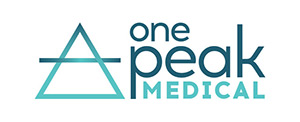The Silent Epidemic: Understanding the Impact of Stress on Your Health
As we dive into National Stress Awareness Month, it’s crucial to shed light on a silent epidemic affecting millions worldwide: stress. In today’s fast-paced world, stress has become an unavoidable aspect of daily life, but its consequences on our health often go unnoticed. In this blog, we’ll examine stress’s profound impact on our physical and mental well-being and explore actionable steps to manage it effectively.
The Hidden Health Crisis:
Stress isn’t merely an inconvenience; it’s a health crisis in disguise. When we experience stress, our bodies enter a state of heightened alertness, triggering the release of hormones like cortisol and adrenaline. While this response is vital for short-term survival, chronic stress can wreak havoc on our bodies over time.
Physical Manifestations:
The toll of stress on our physical health cannot be overstated. From headaches and muscle tension to digestive issues and weakened immune function, chronic stress can manifest in a myriad of ways. Over time, it can contribute to more severe conditions such as hypertension, heart disease, and even autoimmune disorders. Understanding these physical manifestations is crucial for recognizing when stress has crossed the line from manageable to detrimental.
Mental and Emotional Well-being:
Beyond its physical ramifications, stress profoundly affects our mental and emotional well-being. Persistent stress can lead to anxiety, depression, and burnout, robbing us of joy and vitality. Furthermore, it impairs cognitive function, making it difficult to concentrate, make decisions, or maintain healthy relationships. By acknowledging the impact of stress on our mental health, we can begin to prioritize self-care and seek support when needed.
Breaking the Cycle:
The first step in combating stress is understanding its origins. Whether it stems from work pressures, financial worries, or personal relationships, identifying the sources of stress empowers us to take proactive measures. At OnePeak Medical, we emphasize a holistic approach to stress management, incorporating evidence-based techniques such as mindfulness, relaxation exercises, and lifestyle modifications.
Practical Strategies for Stress Relief:
Managing stress isn’t a one-size-fits-all endeavor. It requires a personalized approach tailored to individual needs and preferences. Here are some practical strategies to incorporate into your daily routine:
- Practice mindfulness meditation to cultivate present-moment awareness and reduce stress reactivity.
- Engage in regular physical activity, such as walking, yoga, or swimming, to release tension and boost mood-enhancing endorphins.
- Prioritize self-care activities that bring you joy and relaxation, whether reading a book, listening to music, or spending time in nature.
- Foster supportive relationships with friends, family, or a therapist who can provide emotional validation and practical guidance.
- Establish healthy boundaries to protect your time and energy, saying no to excessive commitments and obligations.
Conclusion:
As we commemorate National Stress Awareness Month, let’s recommit ourselves to prioritizing our well-being and supporting others in their journey toward stress resilience. By understanding the profound impact of stress on our health and implementing proactive strategies for management, we can reclaim our vitality and thrive in the face of life’s challenges.
At OnePeak Medical, we’re here to support you every step of the way on your path to optimal health and wellness. Stress may be inevitable, but its consequences don’t have to be. If you are suffering from ongoing stress, please contact us today so we can support you and create a holistic plan of action to help you feel your best.

